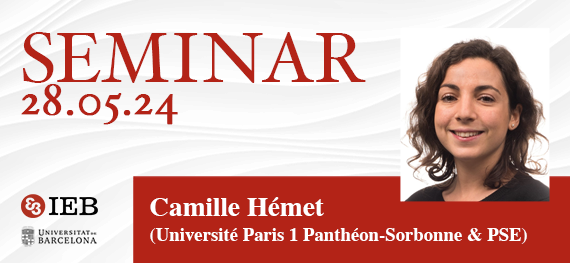Próximos actos

SEMINAR: Emilia Simeonova (Johns Hopkins University & NBER) – «Children of the Pill: Long-term and Interge...
May 14, 2024 - 14.30h - Room 1038

SEMINAR: Wookun Kim (Southern Methodist University and CESifo) – «Migration, Commuting, and the Spatial Distrib...
May 21, 2024 - 14.30h - Room 1038

SEMINAR: Gianmarco Daniele (University of Milan) – «Mafia, Politics and Machine Predictions»
May 24, 2024 - 13.30h - Room 1038

SEMINAR: Camille Hémet (Université Paris 1 Panthéon-Sorbonne & Paris School of Economics) – «Neighbor effe...
May 28, 2024 - 14.30h - Room 1038

SEMINAR: Andreas Löschel (University of Münster) – «Improving Citizens’ Support for CO2 Taxes»
May 30, 2024 - 14.30h - Room 1038


